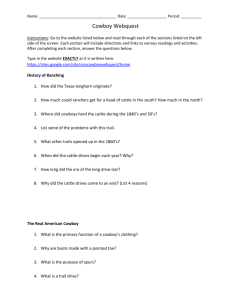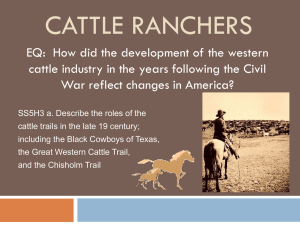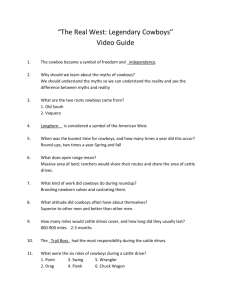Cowboys and Cattle ppt - Effingham County Schools
advertisement
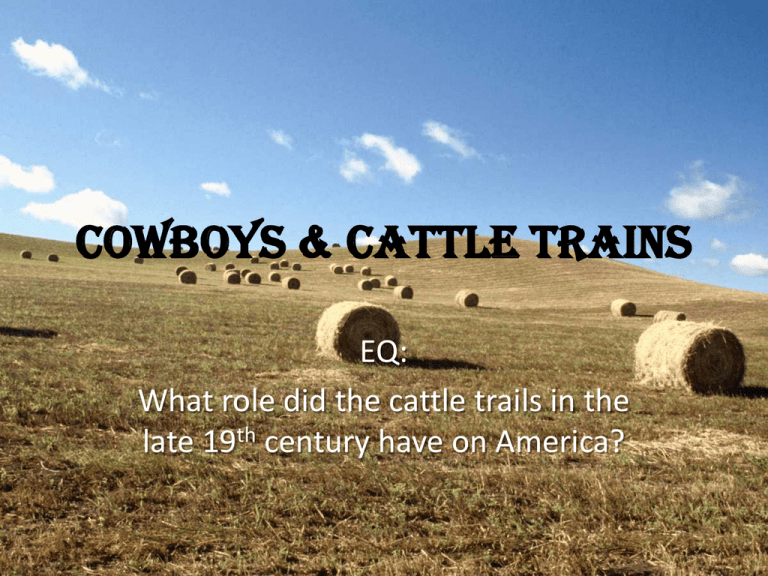
Cowboys & Cattle Trains EQ: What role did the cattle trails in the late 19th century have on America? Life after the Civil War • Texas cattle farmers returned home to find that their cattle herds had grown tremendously while they were away • The good news was that demand for beef was growing in the East. Most of the cattle there had been consumed by Union & Confederate armies • But how do you transport cattle so far away? • The solution came from Joseph McCoy, a young cattle shipper from Illinois. • McCoy came up with the idea to herd cattle north through Texas and the Indian Territory and meet up with the railroads in Kansas. • There, cattle would be loaded into railroad cars and transported east. McCoy chose Abilene, Kansas for his shipping point. Chisholm Trail • In 1867, the Chisholm trail was developed. Historians estimate that 6 million cattle made their way up the Chisholm Trail from 1867 to the mid 1880s … that’s a lot of beef! Chisholm Trail: cattle trail from Texas to Kansas, then loaded onto railroads & shipped East. • Other trails were established to take cattle to additional loading points or to stock ranches in the northern plains. • The Great Western Cattle Trail took a more westerly route through Texas up to Nebraska and northern territories. • It became the main road for cattle heading to northern markets. Great Western Cattle Trail Question: 1. Why did Eastern states need beef? 2. What was the solution to get Texas cattle to eastern cities? 3. What was the name of the first cattle trail? 4. What was the name of the cattle trail that took cattle to northern territories? Head ‘em up and move ‘em out • Historians estimate that 35,000 cowboys herded cows among western trails in the second half of the 19th century. • About 9,000 of them were black cowboys. • After the slaves were freed, many moved out west to work on Texas ranches. • Others had already lived in Texas and herded cattle for their masters. • Black and white cowboys worked, ate, and slept together. Though racial discrimination still existed, the black cowboys of Texas were treated much better on the range than anywhere else. • Skills mattered to the ranch bosses, and the black cowboys proved their value on the ranch. • They also showed off their skills in local rodeos by riding bulls and bucking broncos. • Bill Pickett is one of the most famous black cowboys of all time. • By the end of the 1800s, railroads had expanded throughout the west and eliminated the need for long cattle drives. • Although the era of cowboys and cattle trails lasted for only about 20 years, the “Old West” is one of the most colorful times in American history!
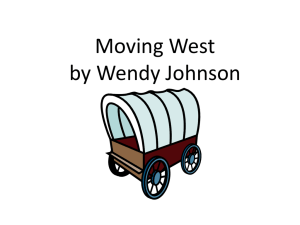
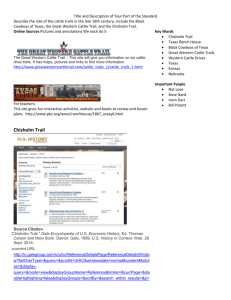

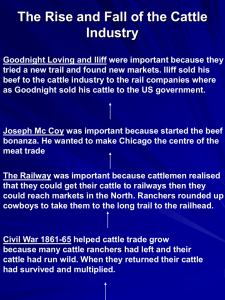
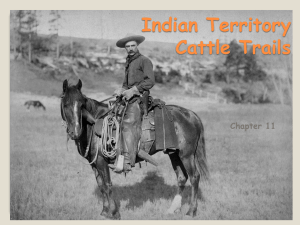

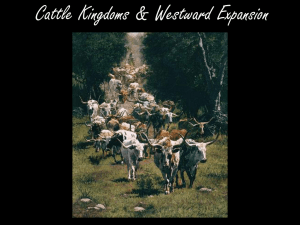
![The West at the Turn of the Century Background[1]](http://s2.studylib.net/store/data/005309077_2-9f76520e325a0937860ba2b010a095e6-300x300.png)
